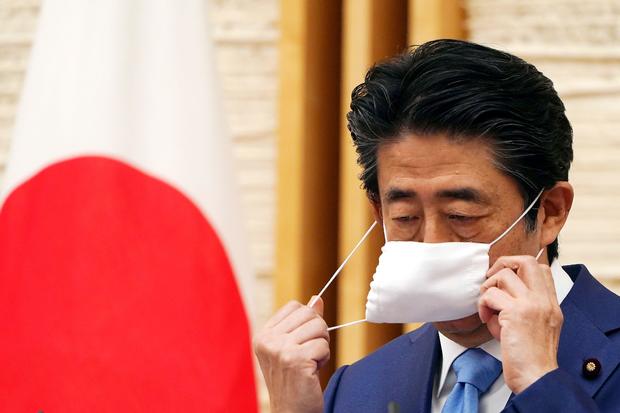Tokyo — Japanese Prime Minister Shinzo Abe will step down from his role leading the country due to declining health, he said Friday. The bombshell announcement will bring a contest for the premiership in the world's third-largest economy as it grapples with the coronavirus pandemic, the looming threat from North Korea and an increasingly aggressive China.
"I have decided to step down from the post of the prime minister," Abe said Friday at a news conference, adding that he was suffering from a recurrence of the ulcerative colitis that brought an end to his first term.
Hiroshige Seko, a party secretary general for the Upper House of the parliament, said earlier that Abe had decided to resign so his health wouldn't "cause trouble."
Concerns about Abe's chronic health issues, simmering since earlier this summer, intensified this month when he visited a Tokyo hospital two weeks in a row for unspecified checkups.
Abe, whose term ends in September 2021, is expected to stay on until a new party leader is elected and formally approved by the parliament.
He abruptly resigned from his first stint in office in 2007 due to his health, which had fueled concerns about his recent condition.
Abe on Monday became Japan's longest serving prime minister by consecutive days in office, eclipsing the record of Eisaku Sato, his great-uncle, who served 2,798 days from 1964 to 1972.
But his second hospital visit on Monday accelerated speculation about and political maneuvering around a post-Abe regime.
Abe has acknowledged having ulcerative colitis since he was a teenager and has said the condition was controlled with treatment. After his recent hospital visits were reported, top officials from Abe's Cabinet and the ruling party said Abe was overworked and badly needed rest.
His health concerns added to speculation that Abe's days in office were numbered. His approval ratings are already at their lowest levels due to his handling of the COVID-19 pandemic and its severe impact on the economy, on top of a slew of political scandals.
Shigeru Ishiba, a 63-year-old hawkish former defense minister and Abe's arch-rival, is a favored next leader in media surveys, though he's less popular within the ruling party. Low-key former Foreign Minister Fumio Kishida, Defense Minister Taro Kono, Chief Cabinet Secretary Yoshihide Suga, and economic revitalization minister Yasutoshi Nishimura, who's in charge of coronavirus measures, are widely speculated in Japanese media as Abe's potential successors.
The end of his scandal-laden first stint as prime minister was the beginning of six years of annual leadership change, remembered as an era of "revolving door" politics that lacked stability and long-term policies.
When he returned to office in 2012, Abe vowed to revitalize the nation and get its economy out of its deflationary doldrums with his "Abenomics" formula, which combines fiscal stimulus, monetary easing and structural reforms.
World - Latest - Google News
August 28, 2020 at 03:36PM
https://ift.tt/2YHMg28
Japanese Prime Minister Shinzo Abe to resign due to deteriorating health - CBS News
World - Latest - Google News
https://ift.tt/2SeTG7d
Shoes Man Tutorial
Pos News Update
Meme Update
Korean Entertainment News
Japan News Update
Bagikan Berita Ini















0 Response to "Japanese Prime Minister Shinzo Abe to resign due to deteriorating health - CBS News"
Post a Comment